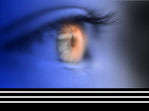The Right Knife
by David Barber
You do not know me, so why
should you care? But the circumstances, the circumstances! It was the end of
the world, the last of us fleeing like lemmings to save ourselves.
I was lucky to find another
survivor. Beck hadn't relied on luck, he'd survived by skill and experience. I
was clearly no threat, and though a brooding silence came naturally to him, he
was glad to hear a human voice again.
He'd never been one for
reading. While rabbit cooked over the campfire, or fish sizzled in the pan, I
entertained him with stories, singing for my supper, I suppose. His taste was
limited to tales of adventure. His favourite was Brown on Resolution.
Having taught English Literature
before, it is curious how books have earned me a living twice over.
I found Beck a boorish man,
and he did not hide his contempt for my education. Still, he missed the old
world, and I reminded him of it. Who knows how long we might have gone on like
that, my Fool to his Lear, before irritation or boredom made him abandon me.
Then we encountered the
woman.
A bullet struck dust from the
path at our feet. Beck rolled into cover, leaving me standing.
"Get down," he
hissed.
"I didn't miss," a
woman called from the farmhouse. "That was a warning shot. Go away."
But after hearing her voice,
neither of us could leave, though each had his own reasons for staying. Which
was why I stepped forward, my hands raised.
"What are you doing?"
Beck cried.
"Give us a chance,"
I called out, expecting a bullet. "You've no reason to trust us, but we
might be all there is."
After a while I opened my
eyes.
I sat on a convenient stump,
while she remained a shadow at a loophole. She could always shoot me later, I
said.
Her father had fortified the
farmhouse and made her practice with a rifle. When he did not return one day,
Amy survived by hunkering down. He'd taught his daughter many useful skills,
but not how to cope with solitude.
So a day or two passed
between us.
"How much longer?"
Beck demanded. In his mind I was like some useful breed of dog, sent to winkle
the woman out of her burrow.
He assumed Amy would be his,
but said there was no reason why the three of us couldn't rub along.
The only time he tried
talking to her did not go well.
"I don't like him,"
Amy told me afterwards.
"You deserve the
truth," I confessed. "He has... plans for you. I will not be part of
that, so I'm moving on."
I waited.
"I don't want you to
go." Her voice was muffled. "I'll let you in, but not him..."
"Amy, he wouldn't allow
that."
I let an exquisite moment pass,
like a caesura in music.
"Are you prepared to use
that gun? Or was it all a bluff?"
That evening, Beck seethed.
"We're not leaving. Why did you tell her we're leaving?"
"To force her hand. She
dreads being on her own again. She said so. It turns out the problem is
you."
"Me?"
"She's afraid of
you."
I grew impatient with his
brutish silence.
"You have to reassure
her," I told him.
Next morning, I kept out of
the way as Beck stalked up to the farmhouse. Time passed and I began to think
I'd miscalculated, when I heard the shot.
"Amy?"
Stepping over Beck, I called
again.
I smiled encouragingly as she
came out the farmhouse. I took the rifle from her trembling hands and she held
me in an awkward embrace.
She was plain, with glasses,
and frizzy hair that might have been red in her youth. Not the type of victim I
usually select, but beggars at the end of the world can't be choosers.
There would be lots of knives
in the farmhouse. Plenty of time to decide on the right one.
The End
David Barber lives in
the UK. His poems have sometimes appeared in Star*Line, Apex, Strange Horizons
and Asimov’s. (He framed the cheque). Though nominated, he has never won the
Rhysling Award.

